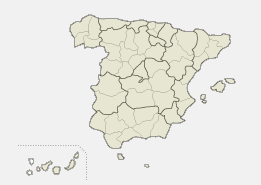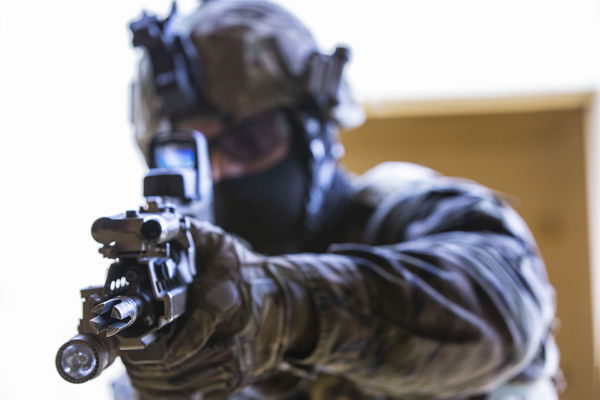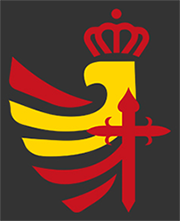- Texto no traducido
- Texto no traducido
- Two friendly teams in the Spanish field
Two friendly teams in the Spanish field
lunes 9 de marzo de 2020
Texto no traducido 95
The Dutch and Spanish Special Operations teams train in the ‘San Gregorio’ Training Centre and share procedures regarding their upcoming deployment in Afghanistan, where both will provide troops.
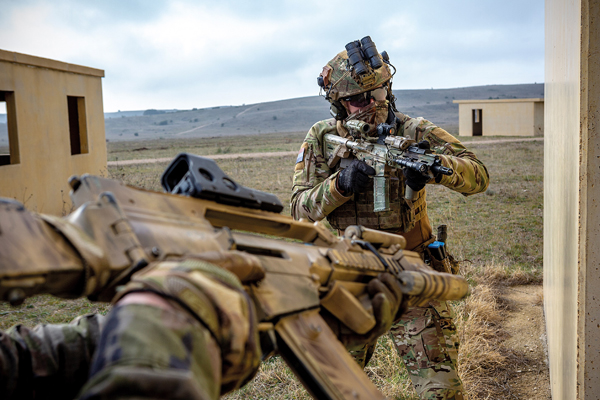
The ‘San Gregorio’ Training Centre offers many possibilities to Spanish units and contributes to their training. However, this manoeuvre ground is also aware of the demands of other countries with which the Spanish Armed Forces are in coalition in different missions abroad.
Between the 16th and 31st of January, the Dutch Army, specifically the Korps Commandotroepen, participated in a bilateral exercise with staff from Special Operations Group ‘Tercio del Ampurdán’ IV. It is the first time that the two units have had the opportunity to work hand in hand and train together and the results were satisfactory.
For the visitors, the terrain has been the main novelty and therefore has offered a different “bonus” to what they are used to. The training initiative in ‘San Gregorio’ with regards to the future deployment in Afghanistan began with the Dutch. Furthermore, the exercise has facilitated the exchange of action procedures between the two units.
«Both Dutch and Spanish staff have established a series of training objectives, which consist of sharing the procedures which they carry out and seeing the differences between the two», says the captain in charge of the Special Operations Tactical Unit which is involved in the manoeuvres.
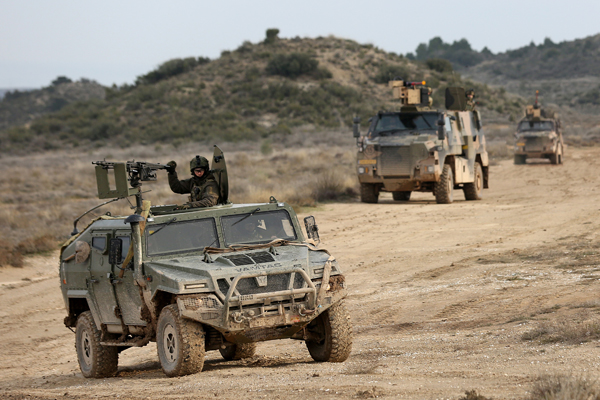
SHARED LEADERSHIP
Each of the units has led part of the exercise. The Spanish 41st Operative Team was the first to pass on its knowledge of mobility to the Dutch, whilst they contributed their techniques for fighting in urban areas. To share the mobility techniques, both units organised a vehicle column. The Dutch were always at the vanguard with their Bushmaster vehicles (similar to the RG-13), whilst the Spaniards followed them in the rear guard. «Although we are integrated in the same column, we won’t mix so that each unit can maintain its protocols, just as would happen in the operations zone», noted the captain in charge of the patrol from the 41st Operative Team.
The Spaniards provided VAMTAC vehicles (High Mobility Tactical Vehicles) to the column and constantly supervised their colleagues in the exercise. There was an incident on the road and one of the Dutch vehicles became stuck as a result of the steep terrain and recent rain. Fortunately, they were able to overcome the difficulties and restart the march.
They were also accompanied by an ordinance disposal team which acted quickly to locate the threat: Boss, a dog who is able to both attack and detect explosives signalled the IED and the disposal technician was able to neutralise the device. «Boss was trained in Germany and he provides us with more opportunities to find explosives» explains Warrant officer class 1 Auke, a dog handler in the Dutch unit.
The Spaniards are happy with their colleagues’ results. «I didn’t have the opportunity to see the Bushmaster in action, but I was able to see that it has a lot in common with the Spanish RG-13 vehicles», highlights a corporal who is a VAMTAC driver.
In the same way, the captain in charge of the tactical unit points out that it is «enriching to know the procedures that are carried out in other types of units, since, although they are similar, we can normally observe and implement some very useful improvements».
URBAN COMBAT
Whilst the Spaniards led the transportation, the Dutch led in regards to urban combat training. They shared their knowledge with the Spaniards and, in the Casas Altas area (within the same manoeuvre ground), they put into practice everything they had learned.
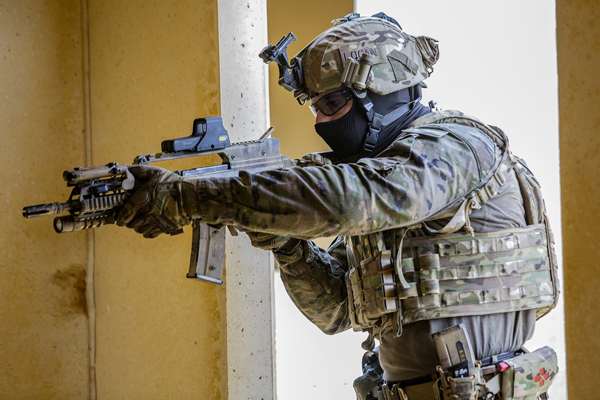
«It is a very productive exercise, because their Special Operations teams have a good level and they allowed us to share procedures; in any case, we are satisfied because the protocols are similar», explains a lieutenant from the 41st Operative Team.
The Dutch shared their
urban combat techniques
with the Spaniards.
Along the same lines, he emphasizes that exercises like this set common guidelines for action, but this has to be adapted to the actual situation in the operation. In any case, training is essential to knowing how to act and coordinate the movements of the whole team. «It is an opportunity to learn from one another about the base which each unit currently has», he asserts.
THE DUTCH PERSONNEL’s IMPRESSION
Commander Joep, chief of the Dutch Tactical Unit, wanted to emphasise, in a statement made to Tierra, the possibilities which ‘San Gregorio’ has offered them regarding their training. «The terrain is bigger and more similar to operation zones in Afghanistan and Iraq», he stated. In the same way, he praised the Spanish training as well as their transportation experience.
Captain Jack, the Deputy Chief of the Tactical Group, highlighted the importance of collaboration between allied armies. As well as exchanging procedures, the staff from both countries had the opportunity to live together during the exercise and share their customs and adjust to each other’s timetables. «The Netherlands and Spain are only separated by two countries, they are geographically close. However, there is the difficulty of dealing with different languages, which means that a certain precision can be lost when it comes to details», says Captain Jack. He points out, however, that as the days went by, the communication improved and they have achieved a good degree of coordination. From his perspective, this is why the exercises have been positive.
50 Dutch soldiers took part in the manoeuvres. Amongst them was the Joint Terminal Attack Controller (JTAC), who was there to coordinate the support of the Remotely Piloted Aircraft System (RPAS).
Upon concluding the exercise, both countries were satisfied. «We are equal to any other European country», highlights the captain of the Tactical Unit. The staff from the 4th Special Operations Group returned to Alicante having gained useful knowledge which will serve them very well in future deployments.
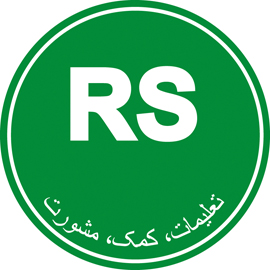
“RESOLUTE SUPPORT”
The bilateral exercise focused on training both units regarding future deployments in Afghanistan. Both Spain and the Netherlands are participating in NATO’s ‘Resolute Support’ mission, which provides support to the Afghan government. Since 2015, the operation has replaced the International Security Assistance Force (ISAF) and contributes to the training and assessment of the Afghan forces to provide them with sufficient capacities to be able to take charge of their own security. The role of Special Operations is essential to the training of the Afghan forces. The ‘San Gregorio’ Training Centre allows the units to train in situations which are similar to those which they may later face in Afghanistan.
Texto no traducido
- Araba Álava |
- Albacete |
- Alicante |
- Almería |
- Asturias |
- Ávila |
- Badajoz |
- Barcelona |
- Burgos |
- Cáceres |
- Cádiz |
- Cantabria |
- Castellón |
- Ceuta |
- Ciudad Real |
- Córdoba |
- A Coruña |
- Cuenca |
- Girona |
- Granada |
- Guadalajara |
- Gipuzkoa |
- Huelva |
- Huesca |
- Islas Baleares |
- Jaén |
- León |
- Lleida |
- Lugo |
- Madrid |
- Málaga |
- Melilla |
- Murcia |
- Navarra |
- Ourense |
- Palencia |
- Las Palmas |
- Pontevedra |
- La Rioja |
- Salamanca |
- Segovia |
- Sevilla |
- Soria |
- Tarragona |
- Santa Cruz de Tenerife |
- Teruel |
- Toledo |
- Valencia |
- Valladolid |
- Bizkaia |
- Zamora |
- Zaragoza
